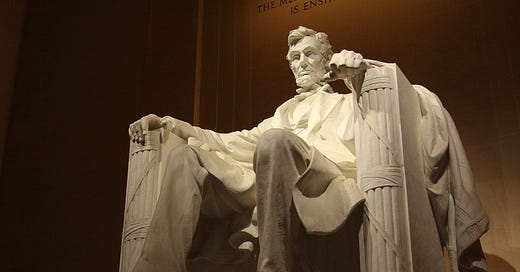The Democratic victory in Georgia’s Senate run-off election earlier this month was the final blow to the Republicans following their dismal midterms performance. Donald Trump has lost no time in announcing his third bid for the presidency, while the rest of the party still grapples with what these results mean for the future.
Questions around grassroots organization and candidate quality are certainly crying out for attention but there is also a deeper existential question that needs to be answered. What exactly does the Republican Party stand for?
Much of the debate around the future of the Republican Party and conservatism has been shaped by Trump. Whether it has been his personality, beliefs, or tweets, Trump has changed the American Right. Unpacking how to respond to Trumpism is an ongoing process, to which this publication hopes to contribute, but the man himself has dominated and warped the conversation. In 2016, Trump powered through the primaries and won the presidency by delivering a distinctive message on trade, immigration, and foreign policy. Since 2020, Trump has been focused on his baseless accusations of election fraud.
Republican candidates who identified as Trump loyalists, winning his endorsement, and embracing his narrative around the 2020 election, suffered significant losses. The Georgia Senate candidate, Herschel Walker, was only the last man to fall in a state where a Republican Governor was comfortably reelected after rejecting Trump’s election claims outright. Competitive races in Arizona and Pennsylvania were also lost, costing the Republicans control of the Senate. The Republicans won one of the smallest House majorities in history. Being the personal party of Trump comes with limited electoral dividends and is holding back the Republicans from becoming capable of forming a majority coalition.
Moving on from Trump is about more than just choosing someone else for the 2024 nomination. It requires a collective restoration of the party’s historic traditions. Boomer-conservatives often use this point to support their case for bringing back the ideological dogma of Buckley, Goldwater, and Reagan. But this is just as unhelpful as the view that Trump should be the cornerstone of the modern Republican Party. The Right in the United States may have only claimed the conservative label in the 1950s, but its intellectual roots stretch right back to the Founding and before that to English constitutionalism.
This is not to say the voters of Georgia would have changed their minds had the candidate only spoken more about the virtues of Richard Hooker and Edmund Burke. The lesson here is that Republican politicians need to demonstrate that their identity and beliefs are rooted in the American tradition, drawing on the wisdom of previous generations who turned this republic into a great country. Pushback against the 1619 Project, toppling statues, place renaming, and Critical Race Theory in education has been popular precisely because it puts Republicans on the side of a shared history, rather than blindly defending a flawed and corrosive individual like Trump.
Without a doubt, there are blemishes in American history that must be confronted. Serious and honest debates around slavery and race are important. Commemoration of the Confederacy, which sought to unravel the Founding and destroy the Union that President Lincoln gave his life to protect, cannot be justified in the modern era. But seeing American history purely through the lens of oppression and discrimination is to distort the nation’s story and discourages people from displaying pride in the republic’s past and its founders. Remove this historical memory and you lose the basis upon which American society has been built. It is a simple task of conserving the nation’s history and protecting it from those who seek to pull it down.
Republicans should apply this lesson to themselves. Their party and conservatism did not emerge pristine from the pages of the National Review, as influential as that publication has been, or even from the pen of Russell Kirk. The GOP is the party of Lincoln, Grant, McKinley, Roosevelt, and Eisenhower. Through them, the Republican Party was shaped by the legacies of both Hamilton and Jefferson under Henry Clay’s American System. Being able to speak more authentically about their party’s historic identity can help Republicans to transition toward the post-Trump future and find a serious governing agenda.
This article is part of the American System series edited by David A. Cowan and supported by the Common Good Economics Grant Program. The contents of this publication are solely the responsibility of the authors.
David A. Cowan is a Ph.D. Candidate in history at the University of Cambridge and a former staffer and researcher in the UK Parliament. He has been previously published at American Affairs, Engelsberg Ideas, and National Review.



